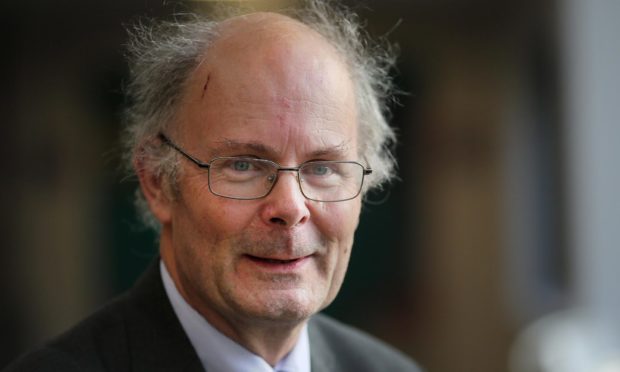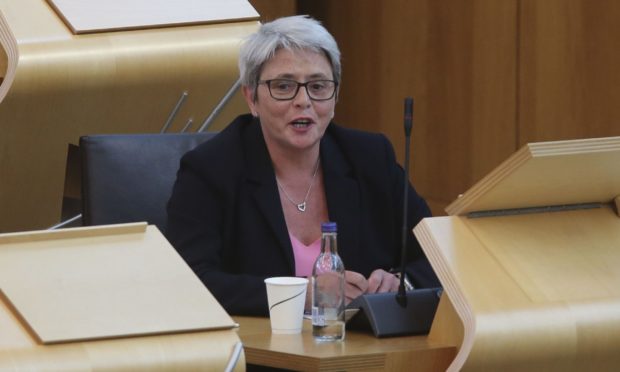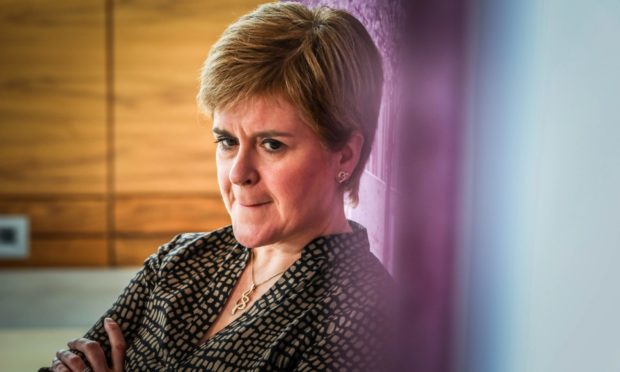The SNP could be on course for a slim overall majority at Holyrood, paving the way for another showdown with Downing Street over independence, according to another eve-of-poll survey.
Nicola Sturgeon’s party appears to be far enough ahead to pick up three more seats than in 2016, ending with 66 MSPs.
That’s just over half of the 129 places in the Scottish Parliament, and would be enough for the SNP to govern alone and claim another mandate for a referendum.
In the volatile race for second place, research for us by pollsters Survation suggests the Conservatives could cling on as the largest opposition group – but only just, at a reduced 24 seats.
Scottish Labour could slip back again by one seat to 23 despite signs of growing popularity for new leader Anas Sarwar. Lib Dems would remain unchanged with just five seats.
Greens would do well on Survation’s results, picking up an extra five regional seats to reach a total of 11 MSPs.
Independence majority
The balance in favour of a referendum, when SNP and Greens are combined, would total 77 of the 129 MSPs in the chamber – all without any members elected from Alex Salmond’s Alba party, who by almost all polling accounts, looks certain to peel around 3-4% from other pro independence parties and fail to do anything with it.
Meanwhile, Survation found support for independence had slipped back by a point from their last research in April. With people who don’t know taken out, the result is 52-48 in favour of the union – a result which still shows a major split across the country.
There is just one day to go before polling stations open, and party leaders are making a last-ditch appeal to voters in what is seen as a make-or-break election for Scotland’s future under the Westminster political system.
‘It could all depend on nine or so constituencies’
Elections expert Professor Sir John Curtice told us several polling firms are picking up a similar pattern for the SNP as election day looms.
“The SNP does appear to be getting more support which would give them a slight majority on these results,” he said.
“But it could all depend on nine or so constituencies, which could change the balance.”
The seat projections are predicated upon the results of the opinion poll being replicated across the country. Which is unlikely to happen seat for seat, due to the unpredictability of the List vote.
Survation’s research was based on responses from adults in Scotland between April 30 and May 4.
Voters are asked to make two choices, the first for a constituency MSP in a first-past-the-post contest. The second party vote is a proportional way of electing regional members to parliament.
In constituencies, the SNP are on 49%, Labour and the Tories are neck and neck on 21%, Lib Dems are on 8% and the Greens are on just 1%.
On the regional vote, the SNP increased their share from Survation’s last poll to 36%, the Tories are up one point on 21%, Labour fall three points to 19%, Greens score 10% and Lib Dems are on 7%.
Mr Salmond’s Alba party scored 3%, which would not be enough to get any candidates elected. But Alba polled slightly higher in the North East parliamentary region, which puts him closer to getting a chance of re-entering Holyrood.
Tories have been campaigning with the message that an SNP majority will lead to another referendum.
Scottish Conservative candidate Annie Wells said: “Yet another poll shows that only the Scottish Conservatives can stop an SNP majority, stop another independence referendum and get all of the focus back on rebuilding Scotland.
“Eight polls in the last week have demonstrated that voting for the biggest opposition party, the Scottish Conservatives, is the only way to stop an SNP majority.
“We can only get the Scottish Parliament 100% focused on Scotland’s recovery if pro-UK, anti-referendum voters come together and lend their peach party list ballots to the Scottish Conservatives.”
‘Don’t leave it to chance’
First Minister Nicola Sturgeon said: “With the election in just a day’s time, there are 24 hours to secure the strong, experienced leadership of our team which is needed to keep Scotland safe.
“The result of every Parliamentary Election is always on a knife-edge, nothing can be taken for granted so, please, don’t leave it to chance: make it #BothVotesSNP.
“We are the only party with an immediate plan to get the country through the pandemic.
“And we are the only party with a serious programme for government to kick-start economic recovery, remobilise our NHS and to tackle the climate crisis – but to get that government people have to vote for it.
“The London-based parties have fought the most negative campaign in the history of devolution with every one of them openly admitting they don’t want or expect to form a government. Instead they want to leave Scotland’s future in the hands of others.
“To avoid that risk I'm asking the people of Scotland to re-elect me as First Minister so I can get on with the job of keeping Scotland safe and to lead the country to a better, brighter future.”
Labour focused on ‘national recovery’
Shadow Scottish Secretary Ian Murray, the MP for Edinburgh South, drew attention to an overnight campaign that saw his party’s recovery message beamed across landmarks.
“Scottish Labour is taking its message for a brighter future across the country,” he said.
“It might go over the heads of the SNP and the Tories, but our focus is a national recovery for a stronger, fairer Scotland.
“If that’s your priority too, use both your votes, especially the peach ballot paper, for Anas Sarwar’s Scottish Labour.”
However, Labour's campaign hit the skids yesterday after senior party member and former chancellor Alastair Darling released a statement to Tory voters claiming that the Scottish Labour leader shared the Tories' priorities. Darling was trying to appeal to Tories to lend their vote to Labour but the claim that the Labour leader shares the Tories' priorities will have shocked many voters who were hitherto considering giving them a vote.
Polls open across Scotland at 7am tomorrow and close at 10pm. Final results are expected around Saturday tea time.












